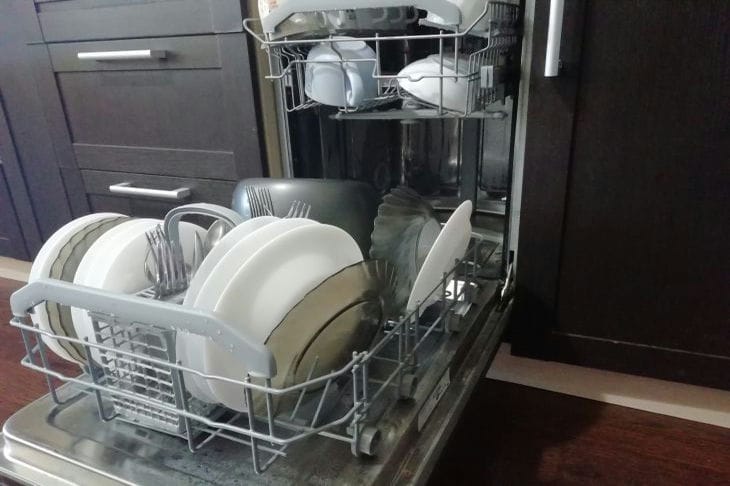Should You Rinse Dishes Before Putting Them in the Dishwasher: Experts Answer
The dishwasher makes life much easier and has become an indispensable device.
However, the question often arises: is it necessary to pre-rinse dishes before placing them in the dishwasher?
In fact, pre-rinsing has its pros and cons, so it’s worth looking into the issue in more detail.
Why you should rinse your dishes
There are several reasons why this is worth doing:
1. Pre-rinsing your dishes helps reduce the risk of food residue that may remain on your dishes after the dishwasher cycle.
2. Removing large food particles from dishes before placing them in the dishwasher helps improve the efficiency of the washing process and prevent possible clogs and malfunctions.
3. Rinsing your dishes before washing can help avoid unpleasant odors that can arise from food debris that may become stuck in the appliance's filters.

Of course, here you still need to start from rationality, so it’s worth understanding why you shouldn’t pre-rinse in most situations.
Waste of water and energy
An extra rinse can waste water and energy, especially if the dishes are not heavily soiled.
Modern devices are designed to use a minimum amount of water during operation. Therefore, manual rinsing does not affect anything globally.
Decreased washing efficiency
Some dishwasher models are equipped with sensors that automatically detect the level of contamination of dishes and adjust the washing program accordingly.
Pre-rinsing dishes may reduce the effectiveness of these sensors.
For example, the device will “think” that the dishes are clean and non-greasy, and accordingly the fast mode will be automatically activated, due to which the corresponding contaminants may remain on the surface.
Earlier we wrote about what to add to water for washing floors.
